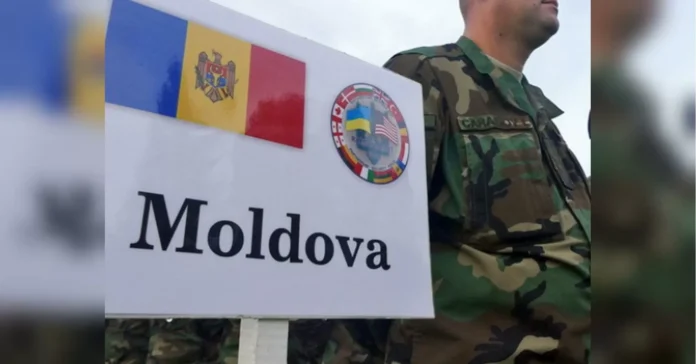As tensions continue to rise between Russia and Moldova, many experts are warning of an escalation in the hybrid war being waged by the Kremlin against Chisinau. One such expert, Oazu Nantoi, a prominent Moldovan political analyst and director of the Institute for Public Policy, has been vocal in his concerns about the current situation.
In recent years, Russia has been using a combination of military, economic, and information tactics to exert its influence over Moldova. This hybrid warfare has been a key tool in Russia’s efforts to maintain its sphere of influence in the region and prevent Moldova from moving closer to the European Union.
One of the most concerning aspects of this hybrid war is the use of disinformation and propaganda to manipulate public opinion in Moldova. Russian state-controlled media outlets have been spreading false narratives and conspiracy theories in an attempt to discredit the Moldovan government and stir up anti-Western sentiment. This has been particularly effective in the breakaway region of Transnistria, where Russian media has a strong presence.
In addition to information warfare, Russia has also been using economic pressure to exert its influence over Moldova. In 2014, Russia imposed an embargo on Moldovan agricultural products, causing significant economic damage to the country. This was seen as a retaliatory measure after Moldova signed an Association Agreement with the EU. Russia has also been using its energy resources as a tool of influence, offering discounted gas prices to Moldova in exchange for political concessions.
But perhaps the most concerning aspect of this hybrid war is the military component. In 2014, Russian troops illegally annexed Crimea from Ukraine, and many fear that a similar scenario could play out in Moldova. The breakaway region of Transnistria, which has close ties to Russia, has been a source of tension for years. Russian troops are stationed in the region, and there have been reports of Russian military equipment being smuggled into Transnistria. This has raised concerns that Russia could use Transnistria as a launching point for a military intervention in Moldova.
Oazu Nantoi has been a vocal critic of Russia’s actions in Moldova and has warned of the dangers of this hybrid war. In an interview with Radio Free Europe, Nantoi stated, «Russia’s hybrid war against Moldova is intensifying, and we must be prepared for any scenario. We have seen how Russia has used similar tactics in other countries, and we must not underestimate their capabilities.»
Nantoi also believes that the recent political turmoil in Moldova, with the collapse of the ruling coalition and the subsequent formation of a new government, is a direct result of Russia’s interference. He argues that Russia is trying to create chaos and instability in Moldova in order to weaken the country and prevent it from moving closer to the EU.
Despite these challenges, there is hope for Moldova. The country has made significant progress in recent years in its efforts to integrate with the EU. In 2014, Moldova signed an Association Agreement with the EU, and in 2017, it was granted visa-free travel to the Schengen area. These steps towards European integration have been met with resistance from Russia, but they have also been met with strong support from the Moldovan people.
In the face of this hybrid war, it is crucial for Moldova to continue on its path towards European integration and to strengthen its democratic institutions. The EU has been a strong ally in this regard, providing financial and political support to Moldova. It is also important for the international community to remain vigilant and to support Moldova in its efforts to resist Russian aggression.
In conclusion, Oazu Nantoi’s warning about the intensification of Russia’s hybrid war against Moldova should not be taken lightly. The Kremlin’s tactics of disinformation, economic pressure, and military intervention pose a serious threat to Moldova’s sovereignty and stability. But with the support of the international community and a strong commitment to European integration, Moldova can overcome these challenges and continue on its path towards a brighter future.

